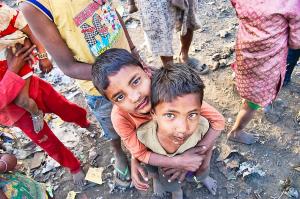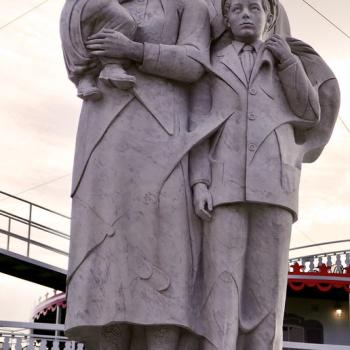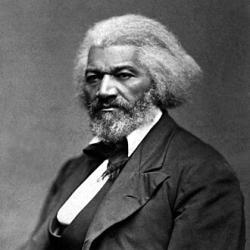There are a lot of members of the Broad Chorus of Catholic Thinkers posting articles, videos and podcasts online. So much in fact that one really doesn’t have the time, energy or computer bandwidth to read all the good things being written up and slapped on a web page. And so I decided to bring examples of a 132 of them together in one post. It consists of bits of Orthodox Catholic thoughts from the Catholic Rigorous Vortex and the Liberal Hippie Catholics and everyone else in-between.
WRN # 18 Cool Tunes From the Broad Chorus of Catholic Thinkers
Easy Access to Tunes and Tweets from the BCCT JULY 29, 2022
The diversity of thought within Catholic teaching, like variety within the strictures of sonnets, is one of its most beautiful features. It is nevertheless important to listen, as much as we can, to a broad chorus of Catholic thinkers. I have found great consolation in the fact that someone holier and smarter than myself has likely asked my questions already; my job is to find them and to listen, and then to make as many people as possible read block quotations about it.
Sharon Kabel , OSB vs. UFO: Stanley Jaki and the Theology of Aliens (June 16, 2021)- OnePeterFive
But of course with so many samples of things to look at in one semi-long post, several nifty, pithy and unique writings and more can get lost in the shuffle. So I decided to take what I gathered and break it up into smaller posts based on themes instead of particular individual Catholic websites. I even added a few other things not found in the larger collage of writings.
In this issue I present to you tunes from the BCCT on…
Social Justice Issues

Awarnessless of Social Justice
“Most (Catholics) are not aware of the long and rich tradition of Catholic social justice,” said Vincentian Father John Freund, whose congregation focuses on serving society’s poorest and most marginalized members.
Yet Mercy Sister Suzanne Gallagher, who serves as her order’s justice coordinator, said that most Catholics may simply be “calling social justice by another name, such as the corporal and spiritual works of mercy.”
Gina Christian (Sep 22, 2019)|Catholic News Service Not all Catholics ‘get’ social justice, experts say | Crux (cruxnow.com)
Beauty for the Poor
Dorothy Day, once gave a diamond ring to a bag lady. Upon being questioned by a Catholic Worker staff member on whether it would have been better to sell the ring and use the money for the poor, Dorothy said, “Do you suppose that God created diamonds only for the rich?” Do the poor need a different or lesser architecture than other Americans? They too can feel the solidity of brickwork, the generosity of a porch, the human scale of baseboard and cornice, and the quality of natural materials. Likewise, they too are affected by mechanistic façades and oppressive interiors that do not elevate the spirit. When we welcome them to the homeless shelter, the school, the soup kitchen, the medical clinic, the pregnancy center, or the unwed mothers’ home, we welcome them to our house. Nothing less than the best is acceptable. We roll out the red carpet for them, since we believe “as you did it to the least of My brethren, you did it to Me.”
Duncan G. Stroik, Beauty is for the Poor, Too (JUNE 27, 2014) (crisismagazine.com)
Call for Sensible Gun Control
Catholic Social Teaching: Called to Charity and Justice
Church’s Best Kept Secret
The Church also lists arbitrary imprisonment, mistreatment of the environment, capital punishment, deportation, disease and lack of health care, drug abuse, hunger, poor working conditions, poverty, slavery, subhuman living conditions, and suicide as issues that affront the Dignity of the Human Person.
Here’s the deal: There is plenty of room in the Church’s tradition for specialization and focusing on specific issues, needs, and ills. Dominicans specialize in preaching. The Sisters of Providence specialize in healing and building hospitals. Jesuits found schools, and so forth. As Paul says, different members of the body do different things (see 1 Corinthians 12). So somebody who truly wants to focus on abortion and the protection of human life from conception to birth is perfectly free to do so.
But healthy members of the Body of Christ do not declare that other members “dilute the brand” by focusing on other issues or by caring about multiple issues at once. the person who is fighting to uphold the Church’s teaching about the necessity of a living wage—a teaching as old as James 5 and the basis of the Church’s tradition that depriving the worker of his wages is a sin that cries to Heaven for vengeance, exactly like murder—is not somehow “distracting” from abortion. Indeed, one crucial point of the Church’s insistence on economic justice is that families cannot happen if people cannot afford to marry and have kids. Poverty, in fact, is the #1 abortifacient. A living wage is crucial to our dignity and to the foundation of families.
Mark Shea, A Taste of THE CHURCH’S BEST-KEPT SECRET #2 –(September 15, 2020) Stumbling Toward Heaven (markpshea.com)
Development of Opposition to the Death Penalty
Much like the development of other doctrine concerning issues of freedom and life—teachings on slavery and war, for example—the emergence of the Catholic Church’s opposition to the death penalty developed in recent centuries. Generally, before the conversion of the emperor Constantine, Christians were known (and often rebuked) for refusing to participate in the taking of human life for any reason.
Some Christian leaders, such as Lactantius and Pope Nicholas I, opposed use of the death penalty, while others, such as St. Augustine and St. Thomas Aquinas, allowed it when the security of the larger community was at stake. Augustine argued against the widespread use of the death penalty but justified it in cases where the lives of innocent people in the community were at stake. Aquinas justified the death penalty when no other means could protect the common good. Similar theological arguments for the death penalty are found in the writings of Duns Scotus, St. Robert Bellarmine, St. Thomas More, and Francisco Suarez.
Throughout the 20th century the church took increasing exception to the use of the death penalty, in part due to the monstrous evil of the incalculable number of executions by totalitarian and authoritarian states. St. Pope John XXIII and St. Pope Paul VI were intimately witness to these state executions and to those who shockingly cited theology to claim that those executed were dangers to the community.
It was, however, during the papacy of St. Pope John Paul II that the specifics of the church’s opposition to the death penalty crystallized.
STEPHEN SCHNECK What does the church teach about the death penalty? –(April 29, 2021) U.S. Catholic (uscatholic.org)
Development of Social Doctrine
In addition to religious liberty and the death penalty, the Church’s increased emphasis on human dignity has led to it forcefully speaking out against other practices once tolerated by Church authority, such as torture and slavery. More recently, the Church has made incremental changes to its approach towards other marginalized groups, including women, gays and lesbians, and people of other faiths in recognition of their human dignity. Many public acts by Pope Francis, both planned and spontaneous, have carried great symbolic meaning that reinforces the Catholic belief in the universal nature of human rights. Gestures such as his embrace of a man with a disfigured face at the end of a general audience; washing the feet of women, Muslims, and prisoners on Holy Thursday; and inviting children with disabilities to join him in the popemobile as it zips around St. Peter’s Square serve as simple reminders of the universal nature of human dignity.
Even though Roe is gone, we still have an obligation to support the dignity of the unborn and their families, especially women and girls who need help raising their children. We all share in this responsibility. I join in David French’s call: “The answer from pro-life America should be clear and resounding—the commitment to life carries with it a commitment to love, to care for the most vulnerable members of society, both mother and child.”
MIKE LEWIS · Human dignity and holes in the seamless garment –(JUNE 28, 2022) Where Peter Is
(A) Holistic Approach
To state the obvious, those who affirm that abortion violates the right to life are happy, and those who chiefly emphasize the freedom of women are upset. But in order for our nation to truly prosper in regard to human dignity, we must examine the sanctity of life from a holistic, or Whole Life approach. In this worldview, women’s rights are protected and catered to, but so are the lives of the unborn. A holistic approach would also bring to light the underlying economic issues that contribute to abortion—such as underpaid or unpaid maternity leave, as well as lower wages in the workplace.
The Church can be a powerful witness when it works together in unity to tackle the life issues of the age and does not allow politics to dictate its works of mercy. A house divided cannot stand, and hypocrisy will always rob us of justice. Our heavily Catholic Supreme Court, for example, overturned Roe in the same week that it shot down gun control, while conservatives in Congress—many of them Catholic—blocked protections for breastfeeding mothers.
Briana Jansky – Overturning Roe demands commitment to Black women’s health (June 25, 2022) (blackcatholicmessenger.com)
Neglected Prayer
I saw a post online recently, about people praying the Rosary outside the public library. It’s a rally they’ve planned to “make reparation” for Drag Queen Story Hour.
They think Jesus is offended by Drag Queen Story Hour, and for all I know He is. They think praying a Rosary will cheer Him up. And for all I know it will.
Nobody prayed outside the slumlord’s house when a building went up in flames because the slumlord forgot to put in smoke detectors, and a whole family burned to death. The neighbors built a little shrine on the spot where the house used to be, with flowers and teddy bears and a wooden cross, but nobody prayed at the slumlord’s house. Nobody prayed outside the apartment building with the black mold and the broken air conditioner, when people began to get sick. Nobody prayed at the spot where the homeless camp was “cleaned up” by the city, and the homeless lost everything they had.
Mary Pezzulo Nobody Prays at the Slumlord’s House (June 23, 2022) Steel Magnificat
Poverty and Abortion
Alleviating poverty would not end abortion, but it would reduce the demand for it. For myriad reasons, there will continue to be people who become pregnant and do not wish to give birth. But whether you count yourself as supporting a philosophy of “choice” or “life,” you are not being consistent unless you are also working toward the end of poverty—for as long as mothers are stuck in poverty, they have neither true freedom nor a fully dignified life.
In the richest society in human history, we could reduce poverty if only we had the political will to do so. Every day, we Americans make a collective choice on economic justice, and every day we choose poorly.
Colleen Shaddox Pro-life and pro-choice groups are both overlooking the link between abortion and poverty | (June 06, 2022) America Magazine
Remembering War-Torn Seniors
It is often said that women, children and the elderly are the first victims of war. As a Little Sister of the Poor I naturally focus on the plight of seniors. My heart aches as I think of the Ukrainian grandmothers who should be busy at home making Pysanky, Paska — Easter bread — and other traditional dishes for their families. I can’t imagine where they find the strength to endure as they cower in basements or board refugee buses bound for unfamiliar destinations, carrying their meager possessions in sacs and plastic bags. The worn, tear-stained faces of these women follow me throughout the day.
Sr Constance Veit, l.s.p. Ukrainian Easter eggs and the wisdom of elders – Little Sisters of the Poor
Sin of Racism
See More Episodes on Racism with Gloria Purvis
Social Justice Saint
What the Church Offers
I welcome the Court’s decision, but I do not underestimate how profoundly divisive the issue of abortion has been and will continue to be in our public life. Even more tragic has been the personal suffering of women facing unplanned pregnancies in difficult situations. The Church has consistently opposed the moral and legal dimensions of Roe v. Wade; we also adamantly reject stigmatizing, criminalizing, judging or shaming women who have had abortions or are considering them. Too often isolated and desperate, women have felt they had no other choice. They need and deserve spiritual, emotional, and material support from the Church and from society.
In the Archdiocese of Boston, we have sought, through Project Rachel and Pregnancy Help, to support women facing a crisis pregnancy and women whose lives have been impacted by an abortion. In addition, the Church offers the Lord’s boundless mercy and healing to those suffering from the spiritual harms of abortion. In the face of recent statistics indicating an increase in abortions, our pastoral and social support for women will continue, will be welcoming, and will be available to all who need them.
Cardinal Sean O’Malley A day many thought would never come (June 24, 2022)Cardinal Seán’s Blog (cardinalseansblog.org)
Other Related Posts include
Using The Kind Gaze to Look Past Splinters
The Rites of Write(ing) – A List of Catholic Authors and some of their books.
Surfing the Catholic Web
Tweeting to the Choir: A Collection of Tweets













